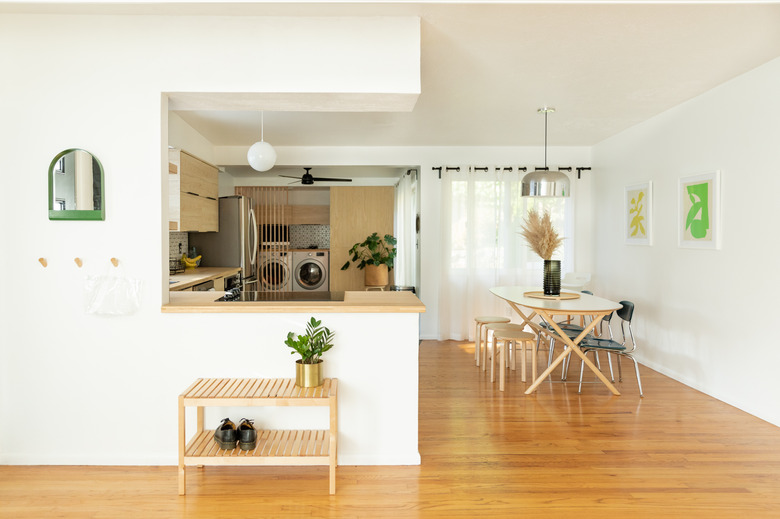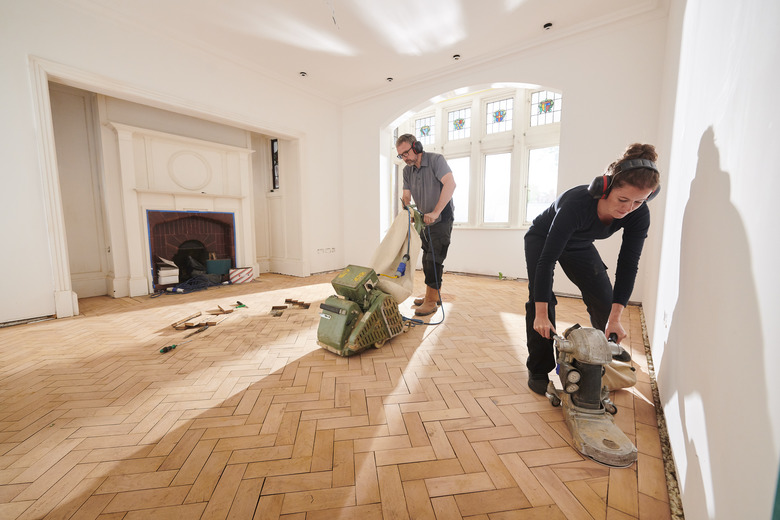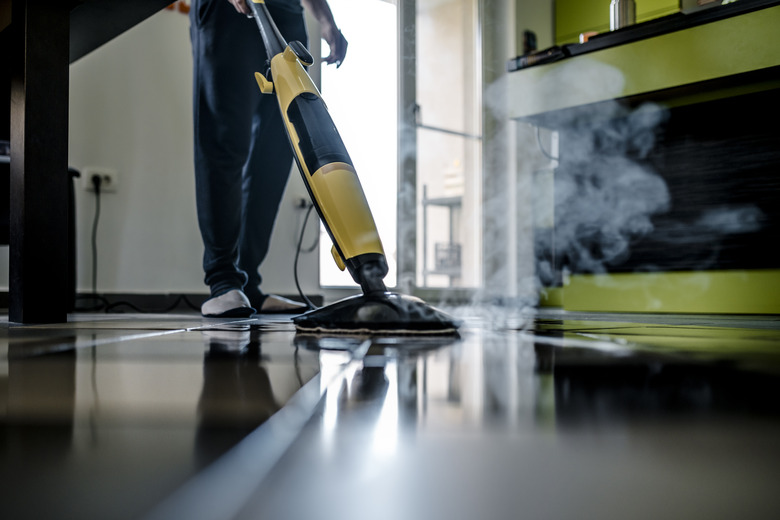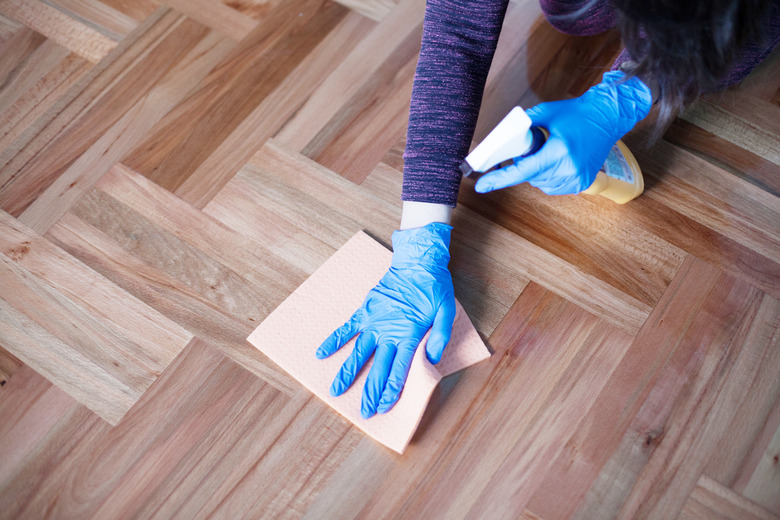What Are Sealed Hardwood Floors?
The term "sealed hardwood floors" often comes up in reference to cleaning products or techniques for hardwood flooring. You also find the phrase used in instructions for steam mops, which, by the way, should never be used on wood flooring of any type. The primary issue with sealing hardwood floors is that while you can seal the top surface of the wood, you can't reliably seal the seams or joints between the floor boards or planks. That limitation makes all wood flooring vulnerable to moisture damage.
In addition to the Achilles' heel of hardwood joints, some wood floor finishes are much less moisture-resistant than others. For example, a modern polyurethane finish does a far better job at sealing the wood surface than a traditional oil-and-wax finish. But the bottom line is, there's no such thing as a sealed hardwood floor that is actually waterproof, no matter how good its surface finish is. This means that you must be careful to minimize moisture when cleaning and caring for your hardwood floor.
Types of Hardwood Floor Sealant
Types of Hardwood Floor Sealant
Because wood is a fibrous, organic material, hardwood floors must be sealed to protect the wood from moisture, stains, scratches and everyday wear and tear. Most wood flooring receives a stain before it is sealed with a protective finish. Stain merely provides color; it does not count as a sealer.
As described by the National Wood Flooring Association, there are two categories of hardwood finish: surface finishes and penetrating finishes. Surface finishes create a plastic-like layer on top of the wood and do a good job of sealing out moisture. The most common surface finish is polyurethane, including standard formulas that are applied on site and aluminum oxide formulations that are used on prefinished hardwood flooring. More traditional (and less durable) types of surfaces finishes include shellac and lacquer.
Penetrating finishes soak into the wood, retaining much of the natural grain and texture of the wood surface. This also leaves the flooring more vulnerable to moisture and stains. As a result, most wood floors with a penetrating finish receive a top coating of wax for added protection. Wax is only moderately moisture-resistant and must be reapplied periodically to maintain a decent level of protection. Common penetrating finishes include tung oil, linseed oil and hard-wax oil finishes.
How to Clean Hardwood Flooring Safely
How to Clean Hardwood Flooring Safely
No matter what type of sealer or finish your hardwood has, the basic cleaning rules are the same. Above all, avoid excess moisture when cleaning, and always wipe up liquid spills and pooled water immediately. There's no need wet-mop or steam clean a wood floor, and both of these methods can damage the wood.
The most important cleaning objective is to keep the floor free of dirt and grit, which scratches and dulls the finish as the floor is walked on. Sweeping or vacuuming regularly is the best way to keep a finish in good shape over the years. It's ideal to sweep or vacuum daily, or at least every few days. Vacuum with a hard flooring attachment on a canister vacuum or a use the hard flooring setting (with no beater bar motion) on an upright vacuum.
If the floor needs deeper cleaning, use a towel or cloth or a sponge or microfiber mop (don't use a string mop, which retains too much water) slightly dampened with warm water. Move the mop parallel to the floor boards, and rinse frequently, making sure to wring out the mop thoroughly each time. Finally, dry the floor with a towel to remove any residual moisture.
Hardwood Flooring Cleaners
Hardwood Flooring Cleaners
Cleaning products are seldom needed for hardwood flooring, primarily because you don't find hardwood in bathrooms and other areas that need periodic sanitizing. If you do want to use a cleaning agent, select a product designed for hardwood floors and the type of floor finish you have. If your flooring is new or newly refinished, contact the manufacturer or flooring installer/refinisher for recommendations.
Never use cleaners that contain ammonia, vinegar, wax, polish, or oil (including oil soap). Ammonia and vinegar can damage wood, and waxy or oily cleaners leave a residue that can make recoating a floor's finish impossible. Most cleaners that are safe for hardwood floors come in spray form rather than concentrates that are mixed with water in a bucket. In any case, use cleaners sparingly and only when necessary, such as to move stubborn stains or clean heavily soiled areas.



